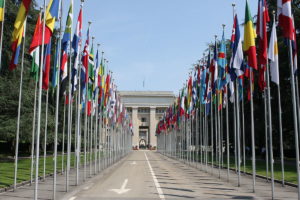 20 October 2021.
20 October 2021.
Today, the specialised mandates tasked with promoting and protecting freedom of expression at the UN, OAS, OSCE and African Commission launched their annual statement, the Joint Declaration on Politicians and Public Officials and Freedom of Expression. The Joint Declaration, which was drafted with the assistance of the Centre for Law and Democracy (CLD), sets out standards which States and a range of non-State actors should respect regarding communications by politicians and senior public officials.
“The 2021 Joint Declaration breaks important new ground in several respects”, said Toby Mendel, Executive Director of CLD. “It includes a significant focus on the need for different actors – including States, politicians, social media companies and the media – to take steps to address political speech which promotes intolerance or hatred, or which constitutes disinformation, such as calling on political parties to adopt codes of conduct for officials and candidates and for the media to implement policies on how they report on such statements when they are disseminated by politicians.”
Some of the many specific standards in the Joint Declaration include the following:
-
- States should never try to influence the views of the public for party political purposes.
- Elected officials, candidates for elected office and senior public officials should be required to make transparent asset declarations.
- Politicians and public officials should treat participants at press conferences equitably and with respect.
- Social media companies should allow users to opt out of having their personal data used for purposes of targeted political advertising.
- The media should disclose any conflicts of interest which may affect the way they report on an issue.
The 2021 Joint Declaration is available in the following languages:
Arabic
English
French
Spanish
Portuguese
For further information, please contact:
Toby Mendel
Executive Director
Centre for Law and Democracy
Email: toby@law-democracy.org
+1 902 431-3688
www.law-democracy.org
twitter: @law_democracy



 28 September 2021, International Right to Know Day, is a day when people around the world celebrate the right to access information held by public authorities, or the right to information. UNESCO recognised the day as the International Day for Universal Access to Information (IDUAI) in 2016 and it was recognised as a general UN day in October 2019.
28 September 2021, International Right to Know Day, is a day when people around the world celebrate the right to access information held by public authorities, or the right to information. UNESCO recognised the day as the International Day for Universal Access to Information (IDUAI) in 2016 and it was recognised as a general UN day in October 2019.
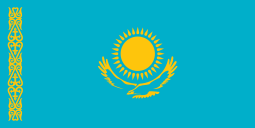 15 September 2021.
15 September 2021. 17 August 2021. The Centre for Law and Democracy (CLD) and the British Columbia Civil Liberties Association (BCCLA) are today releasing their joint Submission to the formal review of Canada’s federal Access to Information Act (ATIA), launched in June 2020. Many of the recommendations for change raised in the Submission have featured in previous submissions by CLD, the BCCLA and various other stakeholders, demonstrating the need for the federal government to abandon its piecemeal approach to amending the ATIA in favour of root-and-branch reform.
17 August 2021. The Centre for Law and Democracy (CLD) and the British Columbia Civil Liberties Association (BCCLA) are today releasing their joint Submission to the formal review of Canada’s federal Access to Information Act (ATIA), launched in June 2020. Many of the recommendations for change raised in the Submission have featured in previous submissions by CLD, the BCCLA and various other stakeholders, demonstrating the need for the federal government to abandon its piecemeal approach to amending the ATIA in favour of root-and-branch reform. 6 August 2021. The Centre for Law and Democracy (CLD) is today releasing open letters sent last week to the leaders of the three main Nova Scotian political parties, the
6 August 2021. The Centre for Law and Democracy (CLD) is today releasing open letters sent last week to the leaders of the three main Nova Scotian political parties, the  30 July 2021.
30 July 2021.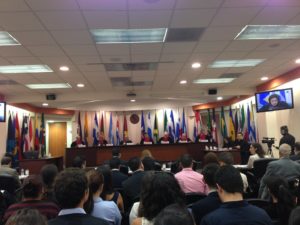 15 June 2021. Today, Toby Mendel, Executive Director of the Centre for Law and Democracy (CLD), is appearing as an expert witness and presenting a written Statement before the Inter-American Court of Human Rights in the case of Palacio Urrutia and Others v. Ecuador. The case challenges the conviction of journalist Urrutia and fellow defendants for defamation for a newspaper article in 2011 about then-Ecuadorian President Rafael Correa. The conviction resulted in sentences of three years’ imprisonment and a civil damages award of USD 30,000,000, as well as an additional damages award of USD 10,000,000 against the defendant newspaper, El Universo.
15 June 2021. Today, Toby Mendel, Executive Director of the Centre for Law and Democracy (CLD), is appearing as an expert witness and presenting a written Statement before the Inter-American Court of Human Rights in the case of Palacio Urrutia and Others v. Ecuador. The case challenges the conviction of journalist Urrutia and fellow defendants for defamation for a newspaper article in 2011 about then-Ecuadorian President Rafael Correa. The conviction resulted in sentences of three years’ imprisonment and a civil damages award of USD 30,000,000, as well as an additional damages award of USD 10,000,000 against the defendant newspaper, El Universo.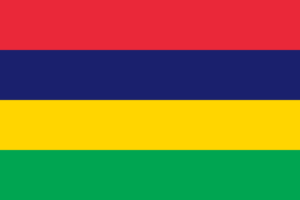 12 May 2021. The Centre for Law and Democracy (CLD) is releasing two documents analysing, respectively, Mauritius’ Information and Communication Technologies Act 2001 (ICT Act) and recently proposed amendments to that Act. The first is a Note highlighting current human rights problems with the ICT Act, including the lack of independence of media regulators and overbroad content restrictions. The second was submitted in response to the Consultation Paper on Proposed Amendments to the ICT Act for Regulating the Use and Addressing the Abuse and Misuse of Social Media in Mauritius (Consultation Paper), issued by the Mauritian Information and Communication Technologies Authority (ICTA) on 14 April 2021.
12 May 2021. The Centre for Law and Democracy (CLD) is releasing two documents analysing, respectively, Mauritius’ Information and Communication Technologies Act 2001 (ICT Act) and recently proposed amendments to that Act. The first is a Note highlighting current human rights problems with the ICT Act, including the lack of independence of media regulators and overbroad content restrictions. The second was submitted in response to the Consultation Paper on Proposed Amendments to the ICT Act for Regulating the Use and Addressing the Abuse and Misuse of Social Media in Mauritius (Consultation Paper), issued by the Mauritian Information and Communication Technologies Authority (ICTA) on 14 April 2021. 10 May 2021.
10 May 2021. 7 May 2021. The Centre for Law and Democracy (CLD) is pleased to join more than 100 other organisations and individuals in endorsing a letter in solidarity with Ivan Pavlov, a Russian human rights activist and lawyer who has been criminally charged with disclosing data of a preliminary investigation which has been declared secret. The likely reason for these charges is Pavlov’s role, along with other members of Team 29, which he heads, in defending opposition leader Alexey Navalny’s Anti-Corruption Foundation (FBK) and campaign offices against criminal accusations of advocating extremism.
7 May 2021. The Centre for Law and Democracy (CLD) is pleased to join more than 100 other organisations and individuals in endorsing a letter in solidarity with Ivan Pavlov, a Russian human rights activist and lawyer who has been criminally charged with disclosing data of a preliminary investigation which has been declared secret. The likely reason for these charges is Pavlov’s role, along with other members of Team 29, which he heads, in defending opposition leader Alexey Navalny’s Anti-Corruption Foundation (FBK) and campaign offices against criminal accusations of advocating extremism.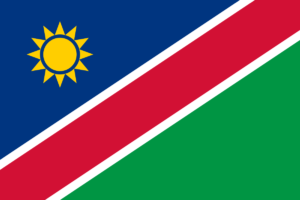 30 April 2021.
30 April 2021. 25 April 2021.
25 April 2021.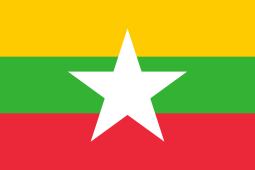 The Centre for Law and Democracy has released a summary, in English and Burmese, on the rights of protesters in Myanmar and of the media workers who cover protests. Widespread protests have broken out across Myanmar in response to the 1 February 2021 military coup d’etat, and the military has responded with arrests, detentions, and violence, sometimes lethal. The summary covers the international human rights standards applicable to protests and provides tips for protesters and journalists on the ground.
The Centre for Law and Democracy has released a summary, in English and Burmese, on the rights of protesters in Myanmar and of the media workers who cover protests. Widespread protests have broken out across Myanmar in response to the 1 February 2021 military coup d’etat, and the military has responded with arrests, detentions, and violence, sometimes lethal. The summary covers the international human rights standards applicable to protests and provides tips for protesters and journalists on the ground. 12 April 2021.
12 April 2021. 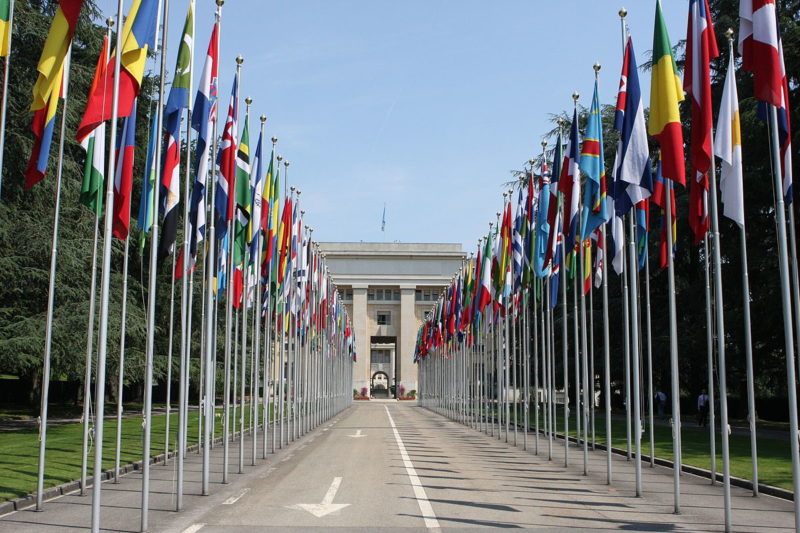 10 March 2021.
10 March 2021. 1 March 2021.
1 March 2021. 23 February 2021.
23 February 2021. 18 February 2021.
18 February 2021.